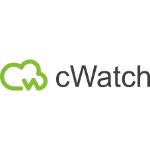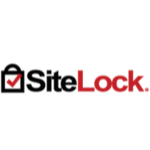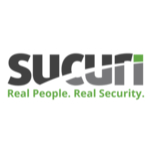MainWP is a solution for streamlining your website management process. With MainWP, you can easily control and update all of your WordPress sites from one convenient location, saving you time and effort. Say goodbye to the hassle of multiple logins a...Read MainWP Reviews
TechnologyCounter provides genuine, unbiased real user reviews to help buyers make informed decisions. We may earn a referral fee when you purchase through our links, at no extra cost to you.
List of 15 Best Website Security Software
Showing 1 - 15 of 20 productsAppTrana is a cybersecurity software that offers robust protection for websites, web applications, and APIs. With its advanced features and unparalleled functionality, AppTrana is dedicated to safeguarding your digital assets from online threats and...Read AppTrana Reviews
1Password is more than just a password manager - its your personal digital vault for storing and managing all your sensitive information. With its robust security features and user-friendly interface, 1Password is a solution for keeping your online a...Read 1Password Reviews
Comodo cWatch, a powerful cybersecurity solution designed to protect your business from online threats. With advanced monitoring and remediation capabilities, cWatch provides real-time protection against malware, DDoS attacks, and other cyber threats...Read Comodo cWatch Reviews
SiteLock is a trusted leader in website security, dedicated to protecting your online presence from threats such as malware, viruses, and hacking attempts. With a wide range of security solutions tailored to meet the needs of businesses and individua...Read SiteLock Reviews
Sucuri is a security software known for its unparalleled protection against website attacks and malwares. With its advanced technology interface, Sucuri offers a seamless website security solution for businesses of all sizes. Trust Sucuri to safeguar...Read Sucuri Reviews
Cloudflare is a leading web infrastructure and security company, revolutionizing how businesses of all sizes operate online. With its powerful suite of technologies, Cloudflare helps websites and applications run faster, smarter, and safer on the int...Read Cloudflare Reviews
InsightVM, the ultimate network vulnerability management solution. Seamlessly scan, prioritize, and remediate risks, all while gaining unparalleled visibility into your entire IT environment. With user-friendly features capabilities, InsightVM is the...Read InsightVM Reviews
SiteGuarding is a security solution that is essential for every website owner. Developed by industry experts, it offers advanced protection against online threats and keeps your website safe from malicious attacks. With its user-friendly interface an...Read SiteGuarding Reviews
Menlo Security is a leading cybersecurity company that offers innovative solutions to protect businesses and organizations from online threats. With a strong reputation for reliability and efficiency, Menlo Security is dedicated to providing top-notc...Read Menlo Security Reviews
Astra Web Security is a dynamic solution that prioritizes the safety and protection of your online presence. With its advanced features and user-friendly interface, Astra is the ideal choice for keeping your website secure from malicious threats and...Read Astra Web Security Reviews
BlogVault - Your Ultimate Backup and Security Solution for WordPress. Say goodbye to the stress and worries of losing your valuable data or falling prey to cyber attacks. With BlogVault, you can rest assured that your website is safe and secure with...Read BlogVault Reviews
Acunetix is a web vulnerability scanning software that helps businesses and organizations protect their online assets from security threats. With advanced features and automated scanning capabilities, Acunetix ensures the security of websites and web...Read Acunetix Reviews
NetFoundry offers a game-changing platform for businesses to securely and seamlessly connect their applications and data without the limitations of traditional networks. With NetFoundry, organizations can achieve global connectivity with ease, enabli...Read NetFoundry Reviews
ImmuniWeb On-Demand - your one-stop solution for web application security testing. This powerful tool offers a comprehensive suite of features to identify potential vulnerabilities and protect your website from cyber attacks. With its user-friendly i...Read ImmuniWeb On-Demand Reviews
- What Is Website Security Software?
- Top Reasons Why Businesses Need Website Security Software?
- What Are the Top Key Features of Website Security Software?
- What Are the Top Benefits of Website Security Software?
- What Are the Steps to Choose the Right Website Security Software?
- What Are the Types of Website Security Software for Different Industries?
- What Are the Technology Trends for Best Website Security Software?
- What Are the Deployment Options for Website Security Software?
What Is Website Security Software?
Website security software is a software application specifically developed to safeguard websites against potential compromises or unauthorized access. The software functions by actively monitoring and evaluating the ongoing activities occurring on the website, with the objective of identifying indicators of potentially suspicious behavior.
Additionally, it also maintains surveillance over the total user population of the website. The range of activities can encompass many actions, ranging from login attempts to the execution of malicious programs on the website.
Upon detection of a potential threat, the security software has the capability to promptly notify the website owner and implement measures to safeguard it against subsequent attacks and vulnerabilities. Website protection software possesses the capability to uncover vulnerabilities within a website, hence assisting in the identification of weak points.
Additionally, certain solutions may provide patch management functionalities, enabling website owners to effectively resolve problems that arise due to the usage of outdated apps. Furthermore, the utilization of top website security software can also serve as a means to fortify the security of your website against potential crashes and various forms of attack vectors.
Numerous solutions provide firewalls and additional functionalities as inherent components, rendering them compatible with a wide range of websites, including e-commerce, corporate, and other commercial platforms.
Website owners can enhance the security of their websites and safeguard their data and users by employing the best website security software. This software serves as a protective measure against bad actors and other forms of attacks.
Top Reasons Why Businesses Need Website Security Software?
1. One primary objective is to safeguard sensitive information and shield individuals from fraudulent activities and identity theft.
2. In order to safeguard against malevolent assaults, such as Distributed Denial of Service (DDoS), Cross-Site Scripting (XSS), and Structured Query Language (SQL) injection.
3. In order to safeguard against potential cyber threats such as hackers and viruses, as well as to ensure the implementation of effective firewall and detection systems, some measures need to be taken.
4. In order to provide access control, it is imperative to enable users to establish distinct levels of user access to confidential data.
5. In order to guarantee adherence to relevant rules and regulations pertaining to data protection and storage, it is imperative to take necessary measures.
6. The primary objective is to ensure the provision of secure communication and browsing experiences for consumers and clients.
7. The objective is to establish a secure working environment that enables employees to access company data and resources.
8. In order to mitigate the potential for data breaches and the subsequent loss of vital information.
9. In order to establish a robust backup and recovery system for essential data, it is imperative to take necessary measures.
10. In order to ensure access control and authentication, many approaches are employed, including two-factor authentication, biometrics, and secure authentication tokens.
11. The objective is to establish protocols for the implementation of encryption and compliance procedures in order to safeguard sensitive and restricted data.
12. The objective is to provide a set of comprehensive protocols for monitoring and logging network and system activities.
13. In order to effectively oversee and identify questionable behavior and potential risks.
14. In order to ensure the ongoing optimization of security procedures and the diligent detection of potential vulnerabilities, it is imperative to engage in a continuous process of adjustment and monitoring.
15. In order to facilitate comprehensive monitoring of website security, it is important to furnish elaborate reports and audit trails.
What Are the Top Key Features of Website Security Software?
1. Firewall: A firewall is a type of software designed to enhance website security software by establishing a protective boundary that segregates the internal operations of a website from the external internet environment. The principal purpose of this security measure is to mitigate the risk of unauthorized or malicious access and uphold the integrity of the website's data.
2. Multi-factor authentication: This specific type of website security software requires users to provide two or more pieces of supporting evidence as a prerequisite for gaining access to the website. The use of security measures facilitates the reduction of unauthorized access and the theft of confidential data.
3. SSL/TLS: The SSL/TLS protocol enables the development of a secure communication channel between a server and a user, guaranteeing the confidentiality and integrity of data transmitted over the network. This serves to reduce the probability of unwanted access and security breaches that specifically target the data stored on the website.
4. DDoS protection: DDoS security functions as a protective measure for websites, providing them with defense against distributed denial of service (DDoS) attacks. These attacks exploit several distributed systems to overwhelm a website's server with a high volume of requests, resulting in its unresponsiveness or inaccessibility.
5. Web application firewalls: There are multiple discrete classifications of firewalls that have been developed with the purpose of protecting websites from diverse types of malicious traffic, bots, and assaults.
6. Website monitoring: Website security scanning software aids in the identification of potential breaches on websites, including alterations to website content, menacing electronic communications, malevolent network activity, and other infringements of security protocols.
7. Content filtering: Content filtering helps webmasters restrict access to certain content on their websites, reinforcing security by preventing malicious or unwanted content from being accessed.
8. Password protection: Password protection helps website owners protect data by requiring users to create intricate passwords and by employing password-cracking methods to detect any attempt to breach security.
What Are the Top Benefits of Website Security Software?
1. Improved user experience: Website security software plays a crucial role in safeguarding consumers against malevolent attacks and phishing schemes, hence diminishing the probability of encountering any undesirable disruptions throughout their browsing activities.
2. Protection from cyber-attacks: Web server security software plays a crucial role in safeguarding websites from various forms of cyber-attacks, including but not limited to distributed denial-of-service (DDoS) attacks, malware infiltration, and cross-site scripting vulnerabilities.
3. Reduced liability: The utilization of top website security software might also serve to safeguard a corporation or organization against potential legal ramifications arising from the presence of unsafe websites.
4. Enhanced brand reputation: Organizations that allocate resources towards enhancing website security can cultivate a more favorable brand perception and distinguish themselves from industry rivals, concurrently fostering a sense of user confidence and assurance during website visits.
5. Comprehensive, up-to-date protection: Website security software offers extensive protection against the most recent threats, allowing enterprises to effectively address the ever-evolving landscape of security risks.
6. Automated protection: The implementation of site secure software enables the continuous scanning and monitoring of websites for potential dangers, thereby offering automated assistance and safeguarding measures, resulting in time and cost savings for businesses.
7. Improved speed and performance: Antivirus software for websites has the potential to enhance website performance through the mitigation of traffic and reduction of loading times.
What Are the Steps to Choose the Right Website Security Software?
1. Identify your business needs: In order to effectively select appropriate business web filtering software, it is necessary to gain a comprehensive understanding of the specific security requirements of the website in question. Consider the necessary safeguards for your website, such as the implementation of malware protection and encryption measures.
2. Evaluate existing solutions: Conduct an investigation of the presently accessible software options for website security. This analysis aims to compare many elements, including cost, convenience of use, and level of security provided.
3. Create a list of potential solutions: Compile a comprehensive inventory of prospective website security solutions that possess the requisite attributes necessary for safeguarding a website. It is imperative to take into account several alternatives, including cloud-based solutions, open-source solutions, and managed solutions.
4. Select the best solution: Conduct a comprehensive analysis of the available options and choose the most optimal strategy for implementation on your website.
When evaluating a product or service, it is important to take into account many elements that can influence its overall value. These factors include the simplicity of use, cost, and any customer service provided.
5. Test the software: After the selection of website security testing software, it is imperative to do comprehensive testing in order to ascertain its efficacy as a solution. The comprehensive evaluation should encompass performance tests, scalability tests, and functionality tests.
6. Implement the software: Once the software has through tested and proven its efficacy, proceed with its implementation and ensure its appropriate functioning. This may encompass modifications to the website, utilization of specialized configuration scripts, and configuration of databases.
7. Monitor the software: After the installation of the best web protection software, it is necessary to consistently monitor its performance in order to ascertain the level of security and effectiveness of the system. It is imperative to consistently provide updates and diligently apply any security patches.
What Are the Types of Website Security Software for Different Industries?
There exists a wide range of best website security software options tailored to various industries, each designed to cater to the specific requirements of the respective businesses.
In the context of a certain business, such as e-commerce, it is imperative for website security software to have encryption methods for payment transactions, robust authentication mechanisms for user accounts, and additional functionalities aimed at safeguarding client data.
For example, Verisign provides robust encryption technology as a method to safeguard credit card details and other confidential information.
In the context of a distinct sector, such as the banking business, it is imperative that top website security software incorporates supplementary security procedures to safeguard financial records, ensure the security of customer logins, implement multi-factor authentication and perform routine system updates and maintenance, among other essential measures.
Solutions such as NetFence offer evaluations and resources to ensure compliance with essential security standards. In the context of certain businesses, such as healthcare, it is imperative that website security measures incorporate processes that align with the requirements stipulated by the Health Insurance Portability and Accountability Act (HIPAA).
Solutions like MedSec are specifically engineered to offer a high level of security for data that adheres to the requirements set forth by the Health Insurance Portability and Accountability Act (HIPAA).
The selection of top website security software for various sectors is contingent upon the legislative obligations specific to each company and the nature of the sensitive information it manages.
Baselining existing security levels, implementing frequent security patch management, conducting security monitoring, and performing vulnerability scanning are imperative elements of a comprehensive website security protocol in all instances.
What Are the Technology Trends for Best Website Security Software?
The prevailing technical advancements in the realm of website security software mostly revolve around two key elements: cloud-based solutions and real-time analytics.
1. The use of cloud-based solutions has witnessed a notable surge in popularity due to their ability to enable enterprises to effectively administer and safeguard their websites from any geographical location.
Cloud-based online security solutions provide the advantage of scalability since they can be customized to accommodate organizations of varying sizes.
Furthermore, web server security software offer a greater amount of information regarding potential dangers compared to conventional stand-alone counterparts, hence enhancing the ability to promptly identify and mitigate attacks.
2. The significance of real-time analytics is growing, as it enables organizations to actively monitor their websites and identify any anomalous patterns of behavior. Organizations possess the capability to promptly obstruct the origin of illicit activities in real time, thereby mitigating potential harm.
Real-time analytics has the capability to offer reporting and predictions, which can assist organizations in detecting risks and implementing proactive measures.
In the realm of website protection software, cloud-based solutions, and real-time analytics are prominent technological advancements that play a pivotal role in safeguarding websites against hostile actors and ensuring their security.
What Are the Deployment Options for Website Security Software?
When deploying top website security software, there are several options available:
1. Self-hosted: Self-hosted security solutions refer to the installation and management of security measures on an organization's server, which is located within their internal IT environment. This particular method provides a higher degree of control and flexibility, albeit necessitating a greater level of technical proficiency.
2. Cloud-hosted: Cloud-hosted security solutions refer to security measures that are maintained and hosted outside, away from the user's premises. This obviates the necessity for enterprises to internally handle hardware and software, albeit it frequently incurs higher costs and perhaps restricts customization possibilities.
3. Hybrid: Hybrid security solutions include components from both self-hosted and cloud-hosted systems. This configuration allows enterprises to leverage cloud-based technologies while retaining some functionalities within their own infrastructure.















